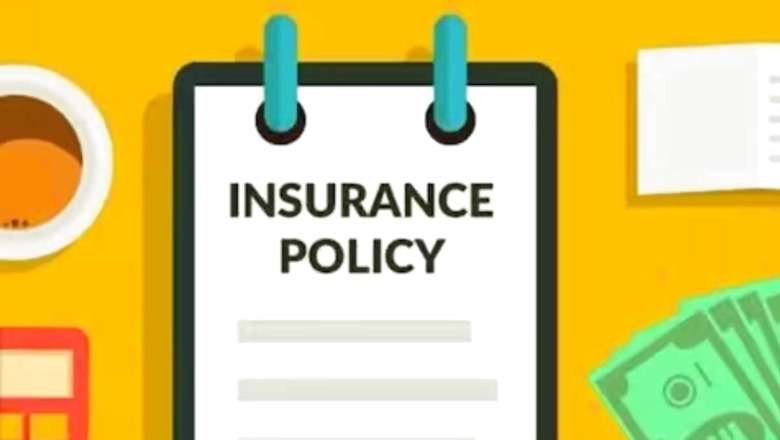
views
Taking different types of insurance policies is important to protect against a range of risks and uncertainties, ensuring financial, health protection and peace of mind for individuals and businesses alike. For example, healthcare costs can be high, and a medical emergency can quickly deplete an individual’s savings. Having a health insurance policy can provide financial protection against unexpected medical expenses, hospitalisation, and surgery costs.
Similarly, life insurance policies provide financial protection to the dependents of an individual in case of their untimely demise. It can also serve as a means of long-term savings, with many policies offering guaranteed returns or bonuses.
However, there are circumstances when a claim made by a customer is rejected by the insurer on different conditions. Insurance companies may reject claims for a variety of reasons such as non-disclosure of relevant information, pre-existing conditions, policy exclusions, delay in filing the claim, fraudulent claims etc.. However, these are not the only reasons and there can be situations where a company is at fault.
It is important to carefully read the policy terms and conditions before purchasing insurance and to provide complete and accurate information at the time of application. In case of a claim rejection, policyholders can contest the decision by appealing to the insurance company or filing a complaint with the Insurance Ombudsman or Insurance Regulatory and Development Authority of India (IRDAI).
Today, we have tried to understand from leading experts when a claim is rejected by an insurer and what a customer needs to know about the process.
TA Ramalingam, chief technical officer, Bajaj Allianz General Insurance and Ajay Shah, head- distribution, Care Health Insurance have highlighted why claims could be rejected and key things to keep in mind to avoid it.
Tips by TA Ramalingam, chief technical officer, Bajaj Allianz General Insurance
Why Are Claims Rejected/ Repudiated?
Claims are typically repudiated because customers do not get into the nitty-gritties of the terms and conditions of their insurance policy document. Customers should be aware of the product they are buying, the coverages, the limitations, and the exclusions of the policy thoroughly before purchasing the policy. Read the policy document carefully and clarify any doubts with your insurer to avoid making claims for events that are not covered under your policy.
Many times, customers tend to opt for policies keeping price as their primary deciding factor and not the coverages or exclusions.
In addition, it is important for customers to be aware of the claim-paying track history capability of the insurer they wish to opt for; in essence, go for an insurer of high repute and who is known well for their seamless and quick claim settlement history.
Things to keep in mind to avoid claim rejection
- Customers should be honest and upfront with their disclosures to the insurer. This could be for example, disclosing any pre-existing diseases, or any previous claims history. Customers must provide all necessary information accurately to the insurer as requested on the proposal form.
- Many times, customers rely on agents, advisors, or employees of the insurance company to fill up the proposal or claim form which is not a recommended practice.
- Every customer must ensure that they fill up the forms themselves so that they are aware of the questions asked and accordingly ratify appropriate responses. Customers who fail to declare requisite information can lead to misrepresentation basis which the claim can be repudiated; however, the same can be avoided by sharing necessary information as required by the insurer of choice.
- There are many fraudsters today, who are looking for purchasing insurance policies just for the claim amount. However, insurance companies have technology and practices in place, especially on the data front that can capture fraud triggers and are able to identify in most cases whether a customer is claiming with the intention of fraud, basis which also claims can be repudiated.
- In health and motor cases where there are more predominant claim cases, customers must try to ensure that they reach out to the authorised cashless garages or hospital network of the insurer which is present on the website. This will ensure a smooth claims experience and lesser chances of claim rejection since it is from the insured’s network and not from the blacklisted list.
- In case of any eventuality which leads to a claim, inform the insurer immediately. If you delay notifying the insurer, then it may lead to a claim rejection as well. Keep all the necessary bills, documents, and reports safe with you which will come in handy during claims.
- Providing false information or making fraudulent claims may result in claim rejection and even legal action.
Tips by Ajay Shah, head- distribution, Care Health Insurance
- Safeguarding your health with the right health insurance plan is a critical decision and requires careful consideration of various factors. While most people focus on the cost of premium and tax benefits, it is important to correctly fill your proposal form and thoroughly examine the policy’s features, benefits and terms and conditions.
- Claim rejections often become an unpleasant surprise causing dissatisfaction and financial strain to the insured. However, this can be avoided by providing accurate and complete information at an initial stage.
- Policyholders’ medical history including pre-existing ailments if any, health records & habits among other necessary details/documents at the time of policy purchase are critical to avoid rejection of claims.
- Besides these, careful understanding of policy’s terms and conditions, clauses or limitations, and making sure you have correctly and fully comprehended the same ensures coverage at the time of need.
- One of the significant reasons for claim rejection is also misrepresentation or non-disclosure of information about age or other personal details. One needs to consider that health insurance policies are underwritten on the basis the information provided by the policyholder and anything beyond that is not covered.
- Hence to avoid this, it is essential to understand the implications of non-disclosure and also provide accurate and complete information. Further, it is advisable to intimate your claim and opt for the nearest cashless network hospital at the time of need to ensure a smooth claim process.
Read all the Latest Business News, Tax News and Stock Market Updates here




















Comments
0 comment